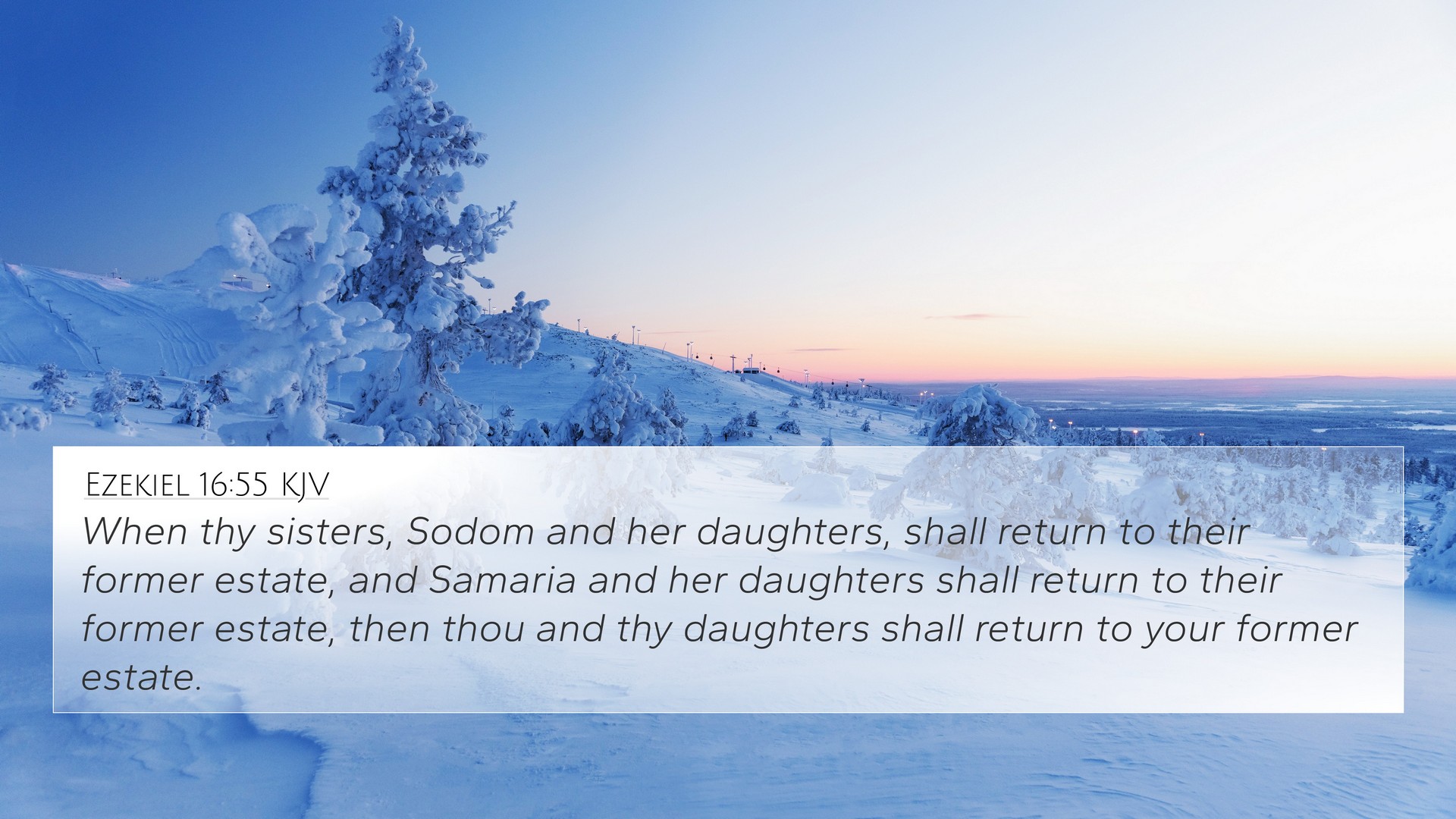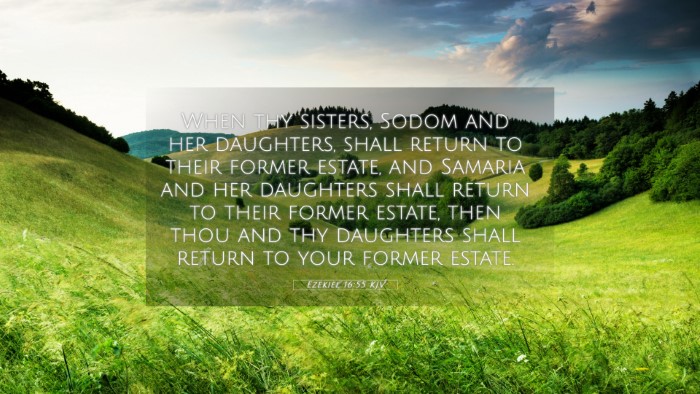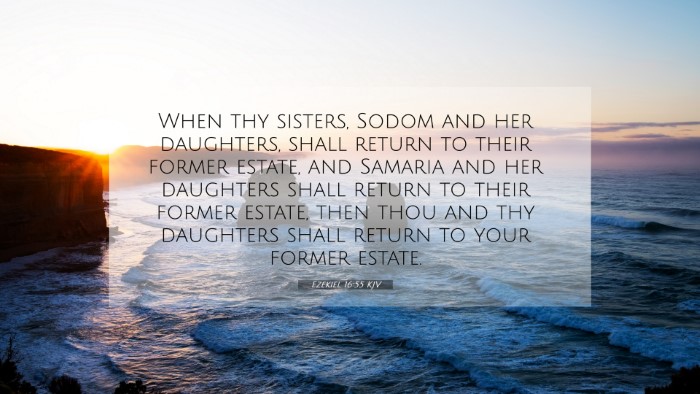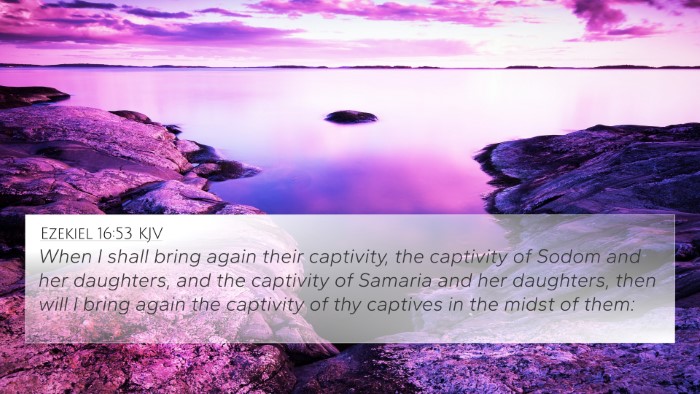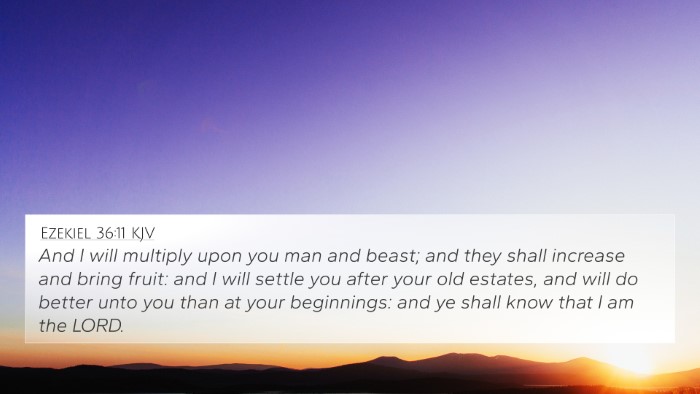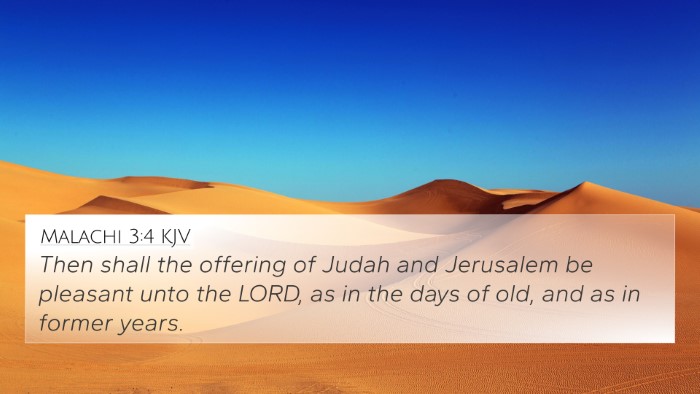Understanding Ezekiel 16:55
Ezekiel 16:55 states:
"When your sisters, Sodom and her daughters, return to their former state, and Samaria and her daughters return to their former state, then you and your daughters will return to your former state."
Verse Meaning
The verse serves as a critical point in the prophetic message of Ezekiel, where God compares Jerusalem to Sodom and Samaria. To understand the implications of this verse, we draw insights from public domain commentaries, which provide layered meanings and contexts surrounding the similarities and differences between these cities and the responsibilities of the people of Jerusalem.
Interpretations and Insights
- Matthew Henry's Commentary: Henry explains that God uses the interplay between Sodom, Samaria, and Jerusalem to illustrate the fate that awaits those who indulge in sin. Sodom represents extreme wickedness, while Samaria symbolizes division and idolatry. The return to their "former state" suggests restoration but implies that this restoration comes after recognizing and repenting from their sins.
- Albert Barnes' Notes: Barnes emphasizes the prophetic nature of Ezekiel's message, noting that the "daughters" of Jerusalem refer to its people and cities. His commentary elaborates that the acknowledgment of sins leads to potential restoration, paralleling other biblical themes of hope through repentance.
- Adam Clarke's Commentary: Clarke connects this verse to the broader theme of societal restoration after judgment. He articulates that this return is not merely physical but a spiritual awakening required for true restoration, pointing to the cyclical nature of sin and redemption present throughout Scripture.
Cross-References for Ezekiel 16:55
To further grasp the meaning of Ezekiel 16:55, we explore the following cross-references that elucidate its message:
- Genesis 19:24-25: The destruction of Sodom highlights the consequences of immorality and disobedience.
- Jeremiah 23:14: This verse addresses the leaders of Jerusalem who, like Sodom, commit abominations.
- Lamentations 4:6: Sodom's punishments serve as a measure for Jerusalem's transgressions.
- Matthew 10:15: Jesus mentions that the punishment of those who reject His message will be worse than that of Sodom.
- Revelation 11:8: Refers to Jerusalem metaphorically as Sodom, reinforcing its moral decline.
- Luke 17:28-30: Jesus draws parallels between the days of Lot in Sodom and the coming judgment, illustrating a repeated pattern of wickedness.
- Ezekiel 18:30: Highlights the necessity of repentance for restoration, reinforcing the message found in Ezekiel 16:55.
- Isaiah 1:9: Discusses the remnant of Israel, suggesting redemption and hope amid judgment.
- Romans 11:5: Contextualizes the idea of a remnant in connection with the larger Jewish society, similarly pointing to restoration.
- 2 Peter 2:6: Refers back to Sodom's destruction as a warning against immorality, drawing on the themes found in Ezekiel.
Connections Between Bible Verses
The connections outlined above illustrate the recurring themes of judgment and restoration throughout biblical texts. They also serve as tools for Bible cross-referencing, allowing readers to examine the continuity of God's message across scripture. For anyone engaging in Bible cross-reference studies, understanding how Ezekiel 16:55 aligns with both historical accounts and prophetic messages enriches the overall understanding of biblical themes.
Comparative Bible Verse Analysis
Analyzing the thematic connections between various scriptures helps unveil deeper meanings. Ezekiel’s message regarding the "return to their former state" offers insights into God’s desire for His people to recognize their shortcomings, thus fostering an environment for repentance and potential renewal.
Thematic Bible Verse Connections
In understanding these connections, one can explore how the concepts of sin, judgment, and restoration are woven together throughout both the Old and New Testaments, culminating in the Gospel message. This inter-Biblical dialogue showcases God's unchanging nature and His readiness to forgive those who turn back to Him.
Utilizing Tools for Bible Cross-Referencing
Using tools such as a Bible concordance or a Bible cross-reference guide can greatly assist in revealing the intricacies of connecting different verses. These resources can aid both personal study and sermon preparation, offering insights into the interconnectedness of biblical texts.
Conclusion
In summary, Ezekiel 16:55 provides profound insights into the concepts of sin and redemption through God's messages to Jerusalem, drawing parallels with Sodom and Samaria. Engaging in cross-referencing biblical texts not only enhances understanding but also deepens one's relationship with scripture, revealing God’s continued call for His people to return to Him. Understanding these connections ultimately enriches one's faith journey.
